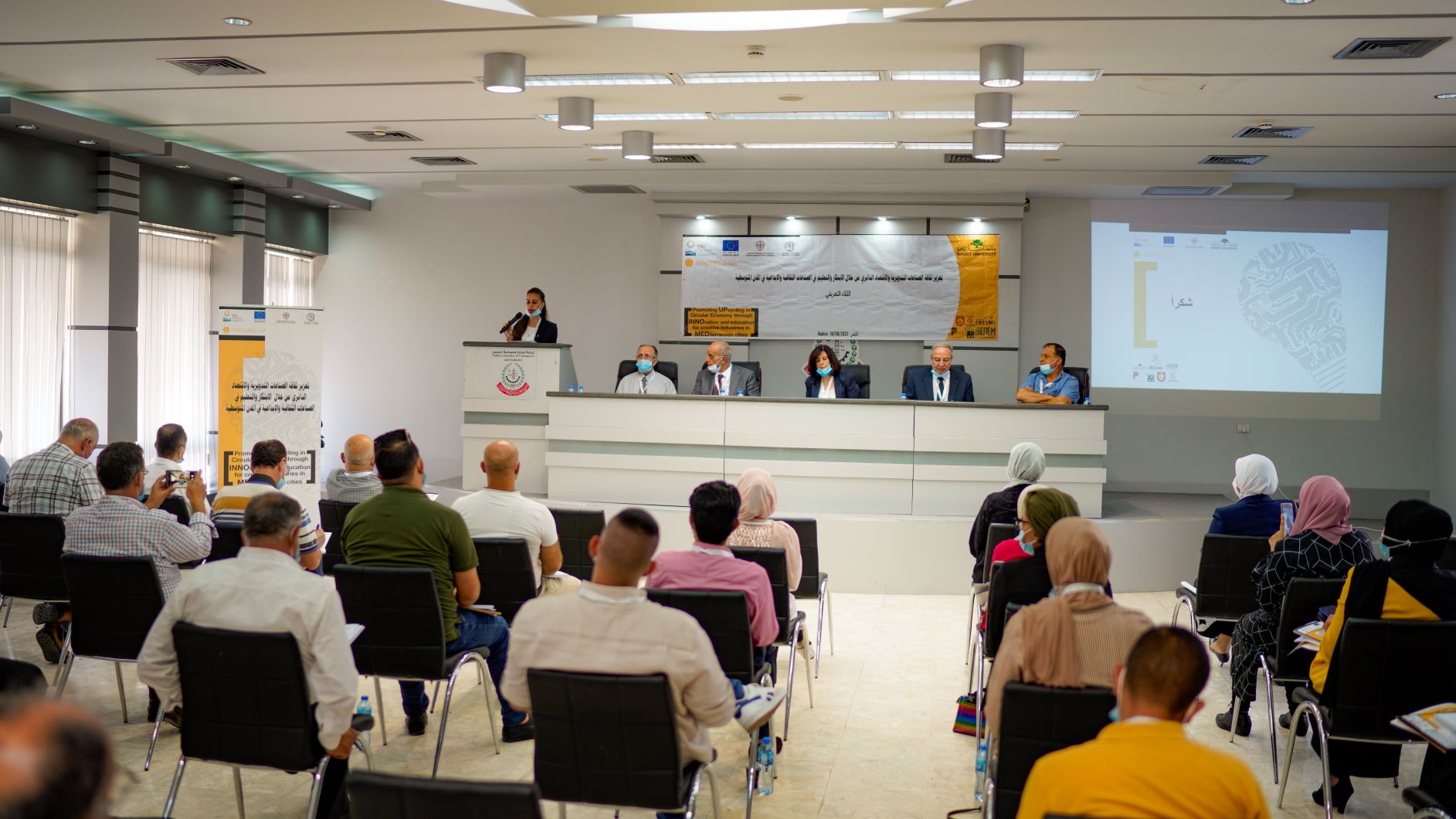
From: To:
INNOMED-UP: SWOT and PEST workshops in Hebron and Nablus, Palestine
Birzeit University conducted its SWOT & PEST workshops in both Hebron and Nablus during the month of August as part of the project, and in order to design a strategy for specialization of the INNOMED-UP’s holistic approach. More than 100 participants attended the workshops in both cities, the diverse pool of participants consisted of local CCI SMEs, key institutional stakeholders such as government bodies, local community institutions, universities and local public authorities.
The workshops aimed at involving stakeholders and local communities and gather information that was used in the SWOT and PEST Analysis and the strategy design for each city. Before the workshops, targeted online interviews were conducted with SMEs via Zoom to capture their inputs for the analysis. Afterwards, their inputs were discussed during the workshops with relevant institutional and educational stakeholders.
After the opening session, and presenting the project’s objectives and expected impact, the participants were involved in discussion of the State of Art Survey report, which was prepared through field visits and discussions with SMEs in the CCI sector. The state-of-the-art reviews helped to determine the intersections with the Circular Economy and the relationship between CCI SMEs and the CE concepts and needs. This information assisted the participants to better understand the SMEs current state and the challenges they face in implementing innovative CE concepts.
The second session focused on the SWOT & PEST results from both cities and opened the debate between SMEs and institutional stakeholders to present their experiences and ideas regarding the current challenges and opportunities for the CE concepts in Palestine. During the feedback session, the majority of participants agreed upon key points to support the CCI SMEs, such as the importance of establishing an incubator for SMEs working in the CE field, and to assign a representative for SMEs to serve as an intermediary between them and decision makers. Additionally, they recognized the need to enhance the governmental laws and regulations that support SMEs and cultural and creative industries and guarantee their sustainability. Moreover, they emphasized on the role of institutional stakeholders in supporting SMEs projects through facilitating initiatives and exhibitions that target their industries.
At the end, the participants agreed on further meetings to continue the efforts to support SMEs and thanked the team for presenting the project’s first year results, and their efforts to link SMEs with decision-makers for a concerted effort to create a favorable ecosystem for SME.









